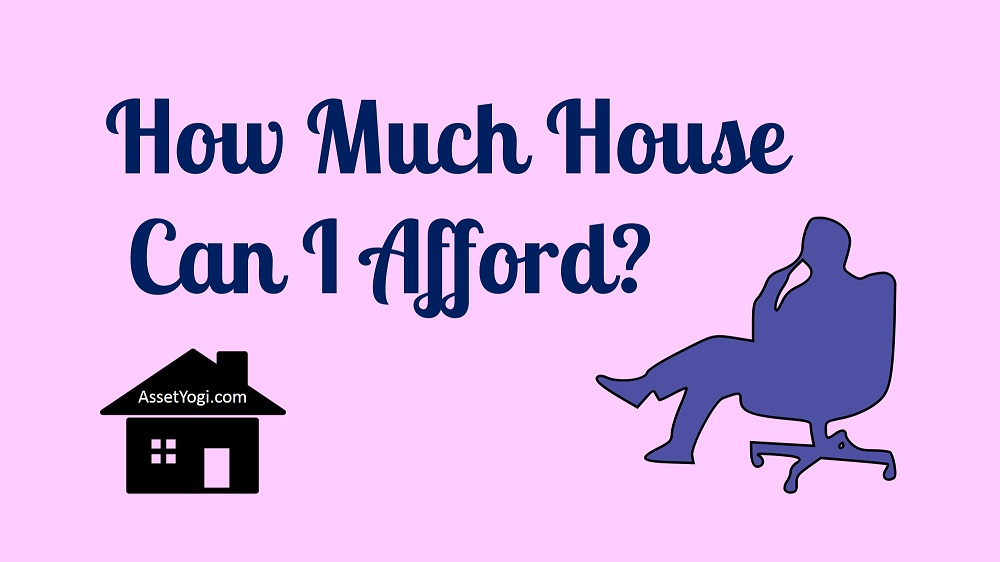Table Of Content

And they don’t know if you’re saving enough for retirement or if you send half your paycheck to your parents every month. If you have a VA loan, guaranteed by the Department of Veterans Affairs, you won’t have to put anything down or pay for mortgage insurance, but you will have to pay a funding fee. You’ll also need to estimate your future home’s utility bills for electricity, gas, trash and water.
Three Homebuyers' Financial Situations
On top of that bill, you’ll have to consider property taxes and homeowners insurance as two more recurring expenses. Your income plays a crucial role in determining how much house you can afford. Lenders use your income to calculate your debt-to-income ratio, which helps them assess your ability to make monthly mortgage payments. The higher your income, the more home you may be able to afford.
Mortgage Rates & Loans
Mortgage Payment Calculator with PMI, Taxes, Insurance & HOA Dues Mortgage Rates, Mortgage News and Strategy - The Mortgage Reports
Mortgage Payment Calculator with PMI, Taxes, Insurance & HOA Dues Mortgage Rates, Mortgage News and Strategy.
Posted: Fri, 03 Nov 2017 22:27:07 GMT [source]
Two benefits to this mortgage loan type are stability and being able to calculate your total interest on your home upfront. An FHA loan is government-backed, insured by the Federal Housing Administration. FHA loans have looser requirements around credit scores and allow for low down payments.
Calculate your buying power
If you just want to ballpark it, the national average annual premium for a $250,000 home is about $1,100 (about $92/month). Closing costs, which will run you about 2% to 5% of the purchase price, will affect how much home you can afford to a greater or lesser extent depending on how you pay for them. That’s why it can make a significant difference if you make even small extra payments toward the principal, or start with a bigger down payment (which of course translates into a smaller loan). Here are a few documents you should gather to help you understand your financial situation and how much house you can afford.
And from applying for a loan to managing your mortgage, Chase MyHome has everything you need. The best-case scenario is getting the seller to pay closing costs without increasing the purchase price. It may be hard to get this concession in a seller’s market, but it may be doable in a buyer’s market. If you can’t afford to pay cash for a house, you’re likely going to need a mortgage. And you’re not alone—78% of homebuyers had to finance their home purchase in 2022, according to the National Association of Realtors. Before you get a mortgage, it’s critical to know how much home you can afford, especially as homes become more expensive.
How Much Income Do I Need To Buy A House?

That’s why your pre-existing debt will affect how much home you qualify for when it comes to securing a mortgage. In addition to mortgages options (loan types), consider some of these program differences and mortgage terminology. Get informed about the mortgage and homebuying process, from starting your home search to planning your next move. Debt payments are payments you make to pay back the money you borrowed. For a mortgage loan, the borrower often is also referred to as the mortgagor (and the bank or lender the mortgagee).
VA loan
Our Closing Costs Study assumed a 30-year fixed-rate mortgage with a 20% down payment on each county’s median home value. We considered all applicable closing costs, including the mortgage tax, transfer tax and both fixed and variable fees. Once we calculated the typical closing costs in each county we divided that figure by the county’s median home value to find the closing costs as a percentage of home value figure. One of the costs you’ll want to consider during the home-buying process is a home inspection. Before you close the deal on a house, there’s usually a period where you can arrange a home inspection to determine the state of the house and any potential problems with the property. If problems are found, you generally have some negotiating power over the seller for repairs or price.
Cash Reserve and Your Ability to Pay Your Mortgage
Another useful rule of thumb to determine your spending power is the 4-to-1 rule, which says you should only buy a home that’s no more than four times your annual income. If you make $30,000 a year, according to the rule, you should be able to afford a $120,000 home. Of course, there are many other variables you’ll need to keep in mind before you decide on the size of your down payment. Believe it or not, there are several types of mortgage loans available to homebuyers.

Nationwide, rates range from 0.30% to 2.13% of the home’s assessed value. Assessed value may be lower than market value, thanks to homestead exemptions. Once you can put down 20%, you won’t have to pay for mortgage insurance. The amount of cash a borrower pays upfront to buy a home; it goes toward the purchase price with mortgage loans typically used to finance the remaining amount. A jumbo loan is used when the mortgage exceeds the limit for Fannie Mae and Freddie Mac, the government-sponsored enterprises that buy loans from banks.
If you choose a 15-year fixed-rate term, you’ll save money on interest, but won’t qualify for as much house. But, think of it this way, you’ll improve your chances for a favorable mortgage, which is usually 30 years of your life. Waiting a few years to put yourself in a better position is just a fraction of time compared to the many years you’ll spend paying your monthly mortgage bill. You’ll stop paying PMI when your mortgage reaches about 78% of the home’s value. A fixed rate is when your interest rate remains the same for your entire loan term.
Based on what type of property you have, your loan type may change. Check out our guide to finding open houses in your area, plus tips on how to prepare for them. Based on the information you have provided, you are eligible to continue your home loan process online with Rocket Mortgage. Read on to calculate how much house you can afford and learn what this means for whether you should buy a house. For questions or concerns, please contact Chase customer service or let us know at Chase complaints and feedback. It’s important to do your own analysis of your short, medium and long-term finances to see how much you can comfortably borrow.
But even if your lender allows it, exhausting your savings on a down payment, moving expenses and fixing up your new place is tempting fate. Fees depend on how many amenities the community has, how many services it requires, and how much upkeep it needs. Local real estate listings can give you an idea about the homeowners association fees in the neighborhoods, condos or townhomes you’re interested in.
With limits in place enforced by Proposition 13, generally property taxes cannot exceed 1% of a property’s market value. With those rules, California’s effective property tax rate is just 0.71%. On the local and county level, additional taxes can be levied if you live in a special district that’s financing an improvement or other local concern. The primary mission of the FHA is to make homeownership more accessible to the American public. With an FHA loan, you can make a 3.5% down payment with a minimum 580 credit score. This allows us to provide accurate estimations to give you the best insight into your buying power.
They use financial ratios to evaluate your loan repayment capabilities and consider your financial stability and creditworthiness. Your debt-to-income ratio (DTI) plays a crucial role in determining how much house you can afford. Lenders calculate your DTI to assess your ability to handle additional debt. A lower DTI indicates more room in your budget for a mortgage, while a higher DTI suggests potential difficulty in making payments.
Look at your full financial picture after you’ve tracked your income and expenses for a few months. For example, if you realize you have $3,000 left over at the end of each month, decide how much of that could be allocated toward a mortgage. Mortgage term refers to the length of time you have to pay back the amount you’ve borrowed. The most common loan terms are 15 and 30 years, but other terms are available. Apply online for expert recommendations with real interest rates and payments.
Expect to pay mortgage insurance premiums for at least a few years. They’ll cost 0.17% to 1.86% per year per $100,000 you borrow, or $35 to $372 per month on a $250,000 loan. The higher your credit score, the more house you can afford for the same down payment. A higher credit score will get you a lower interest rate, and the lower your interest rate, the more you can afford to borrow.

No comments:
Post a Comment